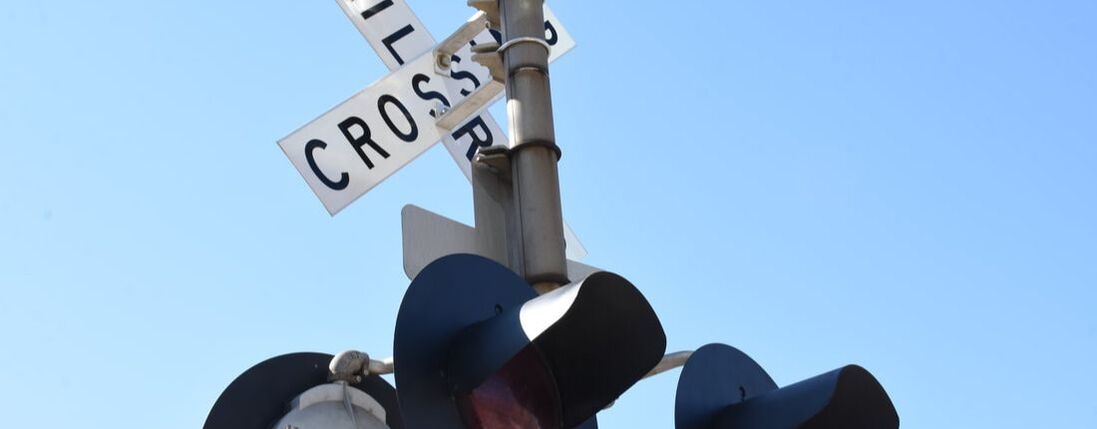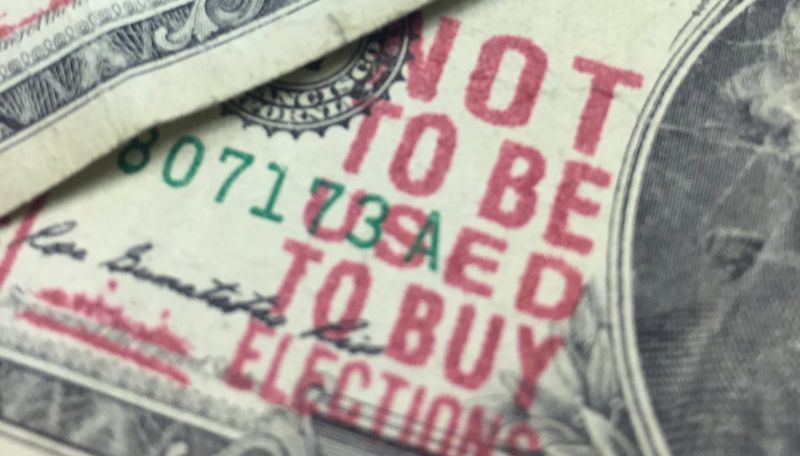 Seriously, is there any holiday more depressing than Labor Day? It goes without saying that our last summer holiday comes much too early, but this year we have the special bonus of leaders who are furious with the lazy, shiftless, unproductive, ungrateful, useless mopes who make up the American workforce. Most years, politicians will issue proclamations about U.S. workers, the bedrock of our nation, pursuing the American Dream, yadda yadda bull bull bull. Not in 2021, though. This year, they're all screaming just one question: Why doesn’t anybody want to work anymore? It's a legitimate question, since millions of people, from bartenders to rocket scientists, are taking extra time to return to the workforce. From entry-level serfs to highly-sought techies, the hesitation is broad-based and troubling. Still, let's be honest about the whole thing. All the politicians and pundits aren't asking about the people who decided to retire last year, a number that apparently doubled to more than 3 million. And they aren’t asking about the people who are earning enough to thrive on one income instead of two. No, the vitriol is reserved for the poor, semi-poor, nearly poor and the millions who are just getting by in the land of plenty. Entire industries, from restaurants to ride shares to daycare, depend on people working for low pay and, often, zero benefits. Pretty much every industry in the country is facing staffing shortages, but we’re only angry at the people who are at the bottom of the pyramid. Fun Fact: None of us wants their jobs, either. Really, when was the last time you woke up and said… “Gee, I wish I could wash dishes for the next ten hours,” or “Wouldn’t it be fun to spend the day cleaning an airport bathroom,” or “I love taking calls all day from people with problems I am not authorized to resolve.” Anyone who wants one of those jobs can get one, because millions of people have moved on to greener pastures. Any takers? Of course, this is how capitalism works. Supply and demand drive prices, free markets create new opportunities and every resource seeks its maximum returns. Most of the time, those resources are steel or oil or rail cars, but this year the scarce resource is people. Real wages for most workers have actually declined over the past 40 years, but it looks like 2021 is the year that everyone is getting a raise, including the dishwashers. Personally, I think it’s worth the tradeoff. I’ll end up paying an extra dime for my coffee and a dollar for my pizza, but maybe we’ll be seeing fewer homeless encampments under the expressway. Maybe fast-food workers will finally be able to buy some of the food they make. Maybe working moms will still have a few bucks left over after they pay someone to watch their kids for ten hours a day. Now, if only we could stop being so furious at the people who are getting a chance to move up a rung on the ladder, Labor Day could be just a bit less depressing for everyone. Our labors would be much more rewarding in the coming year if you just click here to subscribe, and it won’t even require a minimum wage increase.
0 Comments
 The pastor actually seemed irritated that there were no reporters in the church. “You don’t see The Media covering this,” he said as about a dozen congregants literally took the plunge in their baptisms. And all I could think was, “Even here?” No matter where I am or what the situation is, somebody is going to take a gratuitous swipe at The Media. We haven’t reached the point at which everyone is required to wear a mask, but it seems we all have a media-slap quota that we must meet. Even people in The Media love to pile on, dismissing viewpoints they don’t like as “something The Media wants you to believe.” On the left, they deride the right-wing outlets and websites. On the right, they attack everyone else as “leftist,” “mainstream” or “lamestream.” And that’s especially weird, because it’s pretty clear there is no single “media” with a single slant or a singular focus. “Media” is a plural word for a reason. In this country, we have left wing and right wing, mainstream and niche, online, broadcast, corporate, social…even retired guys who take up blogging for fun. Within that confused maelstrom of views, The Media is whatever message I don’t like. If I think the message is wrong or the emphasis is misdirected or the timing is bad or my side isn’t supported unconditionally, I’ll blame The Media. If I’m not getting the attention I want, The Media are biased against me. If I’m getting attention that I don’t want, The Media are biased against me. If I’m getting what I want, The Media finally got it right. Meanwhile, as much as we spit on the Fourth Estate, we rely on The Media for about 90% of what we think we know about this world. I’ve never been to India, never attended a session of Parliament, never rode a rocket…but I know at least something about them from reading the daily news. I’ve never attended a BLM march or a Trump rally, never subscribed to a QAnon site or discussed motivations with anarchists. Over the past several years, it’s become more and more clear to all of us that we live in relative bubbles, restricted to a small social and familial sphere, relying on other sources to flesh out our sense of the world. We rely on The Media. I don’t think there’s any other institution that we rely on so intimately and loathe so flippantly as The Media. It might be the one thing that unites people of all faiths, political views, tribes, cities, states and pronouns. We all hate The Media. Actually, this might be a good thing. Buried somewhere in our universal scorn for the people we depend on so much, hidden in the constant sniping at the people who hired fact checkers before anyone had heard of fact checkers, just maybe there is the kernel of cohesion. Perhaps our disdain for The Media can form the spark of unity this country needs so desperately. It’s not ideal, I know. It’s not like we can agree that there’s a Covid pandemic or that Joe Biden is the president or that internet dress is gold, not black, but at least we can agree on one thing: We all hate The Media. And if we can all share in the glow of our hatred for just a few moments, maybe we can begin the healing our nation craves so deeply. It isn’t much, but it’s a start. Join me in shouting, “I hate The Media,” and we can begin the long journey home. Now that you realize Dad Writes is part of The Media, you’ll absolutely want to cancel your subscription. But you can’t cancel until after you’ve clicked here to subscribe. First things first, my friends.  Welcome to the biggest conspiracy in the world, the great grandmother of all conspiracies, a plot so seamless we don’t even realize it’s a conspiracy at all. Yes, it’s Daylight Saving Time. Since two o’clock this morning, or maybe it was 1:37 last Thursday, we’ve all entered into a plot to convince ourselves, and our poultry, that the sun and the moon and the stars and all the planets skipped a beat. For roughly eight months, we will tell ourselves and anyone who will listen that the natural order of the universe shifted ever so slightly, just because we decreed it so. Spring forward, fall back, do the hokey pokey, it’s all a giant delusion that we agree to share. Yesterday, the sun set at 5:45. Today, we’ll all agree that it’s setting at 6:47. Then, in early November, we’ll take it all back and whine about how early the sky gets dark in the winter. The whole concept is just a bit crazy. The very fact that we have time zones owes more to train schedules than to any underlying need. When every city had its own time, noon was when the sun was directly overhead and everything revolved around that consistent standard. Today, with typical human hubris, we’ve declared that the heavens revolve around our clocks, not vice versa. In a very real way, though, technology has eliminated the need for time zones. Dividing the country, or the world, into standard times was a great idea for the railroads, but why shouldn’t I have my own time zone to meet my special needs? If I can stream my videos whenever I want, why can’t I change the hourglass to suit my mood? F’rinstance, I love the idea of the sun setting late in the summer, but it sets before nine p.m. in Chicago. A few miles east of me, in Indiana, sunset is close to 10 p.m. Why should all those Indiana-inians get to dine out in the sunshine at 9:45 while I’m in the dark? Isn’t it my God-given right to live in a world where my sun sets at ten or eleven? Of course it is. If I had my own time zone, I would always be on time for meetings, because we’d change the clocks to show the right time whenever I arrived. If I had my own time zone, I’d never have a late fee from Visa, because I’d just adjust the clock to make my payments meet the deadline. I’d never forget my wife’s birthday, or our anniversary, because I would just reset the time/date as soon as she reminded me. I’m liking this idea more and more by the minute, whichever minute I choose it to be. Of course, I’ll need to be careful of the space/time continuum. Too much hopping back and forth to make time my servant could lead me to meet my future self and collapse into anti-matter. I promise to use this power only for good, or for really good pranks. I haven’t quite figured out all the details for making this a reality, but I have eight months to figure it out before everyone wants to set their clocks back and I stop the motor of the world. In the meantime, maybe I can convince the fine folks at the Royal Observatory in Greenwich to just move all the world’s clocks up an hour or two and save me the aggravation. How could they possibly refuse? When you click here to subscribe to Dad Writes you’ll never have to check your watch or your clock or your phone or that box in the corner of your computer or the thermostat or the microwave or the stove or your Fit Bit. We’ll tell you what time it is when we email you our weekly update and that’s all you’ll need to know.  What would you think if I told you I was an internationally recognized philanthropist? Or, maybe, an award-winning author? What if I described myself as a private investor or a business mentor? And what would you think if I simply said I’m retired and I left it at that? It’s pretty easy to put people into boxes, reacting to the first descriptors used to define their place in the world. Snap judgments are hard-wired into our survival instincts, which is a great benefit when a lion walks into the kitchen, but not quite as valuable when we’re trading factoids at a cocktail party. (Cocktail parties! Remember those? Sigh.) Most of us add new descriptions to our social resume as we progress through life, engage with family, navigate a career and become whoever it is we plan to be when we grow up. All these new identities and new milestones provide depth and texture to us, to our personalities, and to our social capital. They make us more interesting and more complete, if we take the time to learn anything on our journeys. And then, just as we become our most multifaceted and fully developed selves, we give up. We start talking about ourselves in the past tense, as if we’re drafting our obituaries. I’m a former accountant. I used to be a sales rep. I was once a teacher. I find it just a bit depressing. Everyone has an interesting story or two about their well-earned scars, and everyone is doing something today, yesterday, tomorrow, that forms the nucleus of a new adventure. Despite that rich tapestry, so many people I meet will announce that they’ve given up on being interesting, that all they have to offer of relevance is a job they held. Once. A long time ago. It’s as if there’s nothing we have to offer the world other than our labor and some form of industry expertise. We are our jobs and, when we leave our jobs, we are nothing. Our only claim to relevance is an expired key card from the law firm and, maybe, a part-time gig as a “consultant.” Perhaps it’s my own fault. I still ask people what they do and that generates a default response about how they make, or made, money. I need to get more creative about my introductory conversations. Maybe things will get more interesting if I ask… What was your favorite trip ever? What’s the craziest thing you’ve ever seen face to face? What’s the strangest answer you’ve ever received when you asked someone what they do for a living? One of the positives with questions like these is that I’m unlikely to hear about work. That’s good, because I really don’t want to know about their jobs, or their former jobs, or why they think of themselves as has-beens. “What do you do?” turns out to be a conversation stopper, not a starter, especially when it turns into what someone doesn’t do anymore. Asking people what they do is pretty pointless and likely to make them feel bad about their former glory. If I want better answers, I had better come up with some better questions. The big question we’re all asking at Dad Writes is whether you’ll become a subscriber by clicking here for our weekly insights. So, whaddaya say?  Constitution Day is right around the corner, but don’t be embarrassed if this major holiday slipped your mind this year. The U.S. Constitution is like a software Terms of Service agreement; we all click ‘yes,’ but almost nobody actually reads it. That lack of familiarity leads to some hilarious consequences. For instance, many people believe they have a Constitutional Right to shop at Costco, while others think Freedom of Speech only applies to them. Amazingly, both of these beliefs are incorrect, although you’d never know it from reading internet posts. Never fear, though, as your humble servant has read the document in the original Aramaic and will share all the insights you need to know to become a Constitutional Scholar of the first order. For example… The Constitution was not really all that popular among the people who framed it, several of whom were nearly mortal enemies who disagreed strongly about almost everything. The only reason we ended up with the current version is that The Articles of Confederation (the world’s first Beta 1.0 release) sucked beyond belief. The only way the Constitution got ratified was with the promise to add amendments to it immediately. (Back in 1789, everyone was still using dial-up, so “immediately” meant a couple of years. Still, Jimmy Madison made good on the promise to write up a Bill of Rights for the states to approve.) Speaking of the Bill of Rights, Congress sent 12 amendments to the states, but the first two were rejected. That’s why freedom of speech is in the First Amendment and not the Third. It’s also why people who love the Second Amendment aren’t obsessed with Congressional pay stubs. The Constitution was remarkably advanced for its time, but pretty backwards by current standards. Women didn’t vote, slavery was codified, and the Electoral College gave rural states an advantage that has only grown over time. (Yes, a few people still think the Electoral College is a great idea, but they are the same dopes who put mayonnaise on their pastrami.) The framers of the Constitution were smart, but they weren’t supreme beings. They came up with a pretty good division of powers within government and between government and citizens, but they also failed to invent indoor plumbing or I-Phones or pizza delivery. Maybe it’s time we took some of them down off their pedestals and…oh, wait, that’s actually happening, isn’t it? The concept of judicial review, which makes the U.S. Supreme Court the final arbiter of Constitutional meaning, is not granted by the Constitution. Instead, it resulted from a brilliant political maneuver by Johnny Marshall, who handed Tom Jefferson a tiny win while grabbing a big hunk of power for the court. Smooth. We all should be grateful for that “judicial review” thing, because it’s our primary method of legislation these days. After Congress passes 12,000-page laws that nobody has read before the vote, SCOTUS clerks are the only people who actually read the laws and figure out what they mean. And when Congress fails to take any action at all, it’s up to the courts to dig up some old laws or rulings that they can twist painfully to apply to the pending case. Yeah, I know, lots of people think SCOTUS goes too far in legislating from the bench, but that’s only when an activist* judge rules against them. When the Supreme Court rules in their favor, those esteemed jurists are merely upholding the Constitution. (*Activist = disagrees with me.) As we look forward to this great holiday, it’s wonderful to consider how far we have come in the 23 decades since we adopted the Constitution. Hard to believe, but back then people were actually arguing about how powerful the president should be, separation of church and state, freedom of the press, what and whom to tax, federal power versus states’ rights, and the national debt. Thankfully, we have resolved all of these issues and marched forward in unison since then. Finally, if 34 states approve, everything is up for grabs in a new Constitutional Convention. Depending on how you count “approvals,” we might already be just 6-8 states short of that benchmark, giving today’s politicians the opportunity to reframe our most important document. Fearless forecast: The sequel will not be as good as the original. Before you get all caught up in your Constitution Day celebrations on September 17, do your patriotic duty and subscribe to Dad Writes, as required in Article LVIII.  The first thing to understand is that nobody dies from CV-19. Nobody dies from cancer or diabetes or having a piano fall on our heads, either. We die from something putting such a substantial burden on our hearts that they stop beating, so essentially 100% of us die “from” cardiac arrest. Still, there is always something that puts the strain on our hearts, whether it is cancer or diabetes or having CV-19 taking over our lungs. In many cases, CV-19 tips the scales fatally for someone who is already battling the effects of some other malady. And when that happens, people have a disturbing habit of blaming the victims for their own mortality. “Well, she was only 37, but she had asthma, so that’s really what killed her.” “After three years of dialysis, the virus was just the final nail. By that time, I suspect he really wanted to die.” “If only he’d become a vegan, he never would have gotten cancer in the first place. If you think about it, he essentially committed suicide.” “Remember how she kept saying it was all a hoax? Hah! Karma’s a bitch, baby.” Yes, of course, it’s a TRUE FACT!!! All of these people were asking for it and they were ultimately happy to decrease the surplus population. Coronavirus is the real victim here, falsely blamed for killing nearly a million people who wanted/deserved to die. Kinda makes you want to take the virus into your home and give it a warm snuggle and…never mind. It’s a deflection, of course. Whenever something goes wrong and we cannot control or prevent it, we try to find a reason that it only happens to other people. Even if we have some underlying condition—a status that applies to about 80% of people over the age of 55 and a disturbingly large percentage of people under that age—we try to convince ourselves that THEY were much more vulnerable than WE are. That kind of deflection makes it very easy to be nonchalant about THEIR deaths, especially since most of us don’t know a person who has died from the disease. Yet. On average, if each of us was going to know one person who died of the virus at this point, we would need to have a social circle of about 2,000 people. We’re more likely to know someone who contracted the disease and recovered, of course, but that reinforces our tendency to ascribe blame to the people who succumb. The people who survived were strong, maybe blessed, much as we are, while the people who died were weaker, less deserving, even a bit guilty. Denial is a useful coping mechanism in times like these, but it does have its limits. When we start blaming the victims of a pandemic, we just might have gone over the line. We never went to med school, so this review of medicine and psychology might sound just a bit too simple, but that's okay. We like to keep things as simple as possible, which is why it's so easy to subscribe by just clicking here. |
Who writes this stuff?Dadwrites oozes from the warped mind of Michael Rosenbaum, an award-winning author who spends most of his time these days as a start-up business mentor, book coach, photographer and, mostly, a grandfather. All views are his alone, largely due to the fact that he can’t find anyone who agrees with him. Archives
January 2024
Categories
All
|
 RSS Feed
RSS Feed